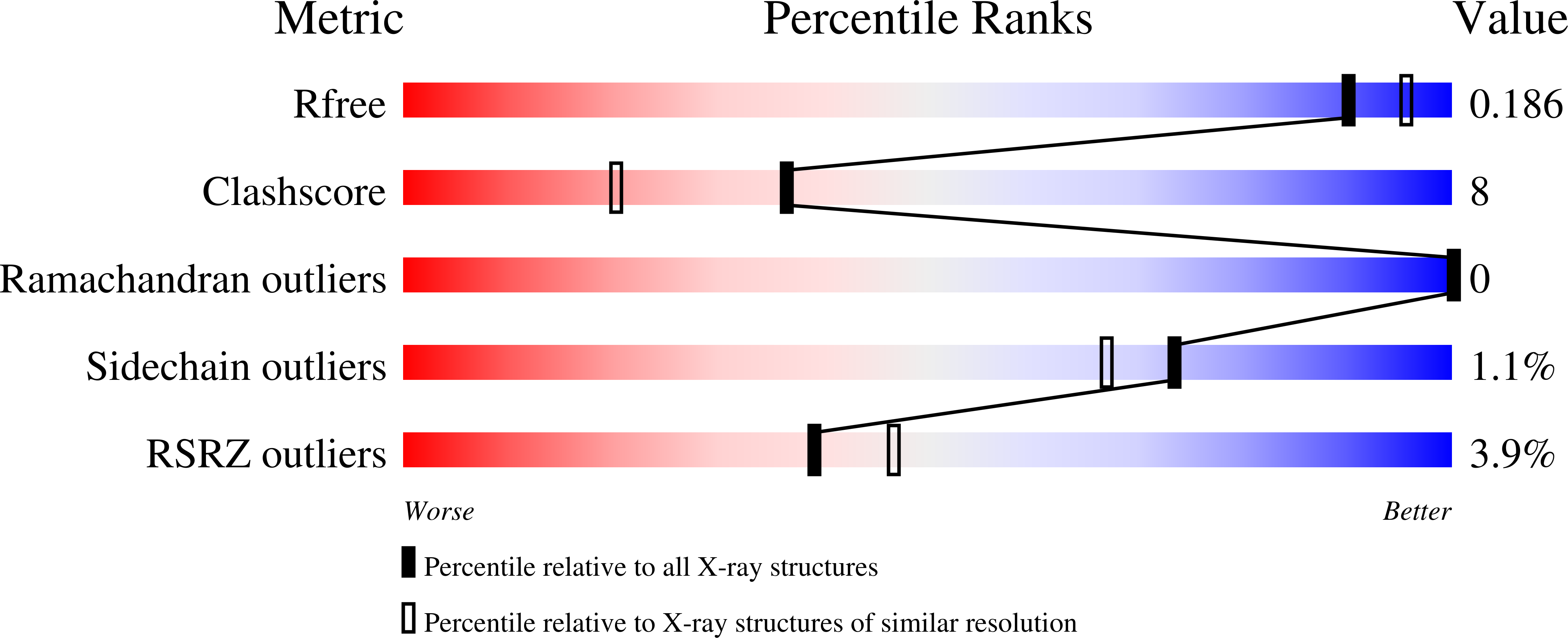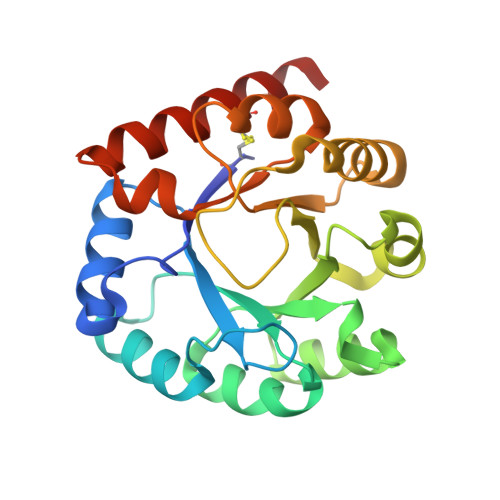Conversion of D-ribulose 5-phosphate to D-xylulose 5-phosphate: new insights from structural and biochemical studies on human RPE
Liang, W.G., Ouyang, S.Y., Shaw, N., Joachimiak, A., Zhang, R.G., Liu, Z.J.(2011) FASEB J 25: 497-504
- PubMed: 20923965
- DOI: https://doi.org/10.1096/fj.10-171207
- Primary Citation of Related Structures:
3OVP, 3OVQ, 3OVR - PubMed Abstract:
The pentose phosphate pathway (PPP) confers protection against oxidative stress by supplying NADPH necessary for the regeneration of glutathione, which detoxifies H(2)O(2) into H(2)O and O(2). RPE functions in the PPP, catalyzing the reversible conversion of D-ribulose 5-phosphate to D-xylulose 5-phosphate and is an important enzyme for cellular response against oxidative stress. Here, using structural, biochemical, and functional studies, we show that human D-ribulose 5-phosphate 3-epimerase (hRPE) uses Fe(2+) for catalysis. Structures of the binary complexes of hRPE with D-ribulose 5-phosphate and D-xylulose 5-phosphate provide the first detailed molecular insights into the binding mode of physiological ligands and reveal an octahedrally coordinated Fe(2+) ion buried deep inside the active site. Human RPE folds into a typical (β/α)(8) triosephosphate isomerase (TIM) barrel with a loop regulating access to the active site. Two aspartic acids are well positioned to carry out the proton transfers in an acid-base type of reaction mechanism. Interestingly, mutating Ser-10 to alanine almost abolished the enzymatic activity, while L12A and M72A mutations resulted in an almost 50% decrease in the activity. The binary complexes of hRPE reported here will aid in the design of small molecules for modulating the activity of the enzyme and altering flux through the PPP.
Organizational Affiliation:
National Laboratory of Biomacromolecules, Institute of Biophysics, Chinese Academy of Sciences, Beijing 100101, China.

















